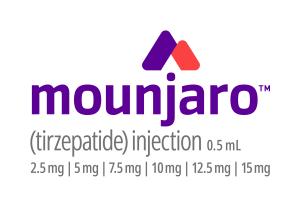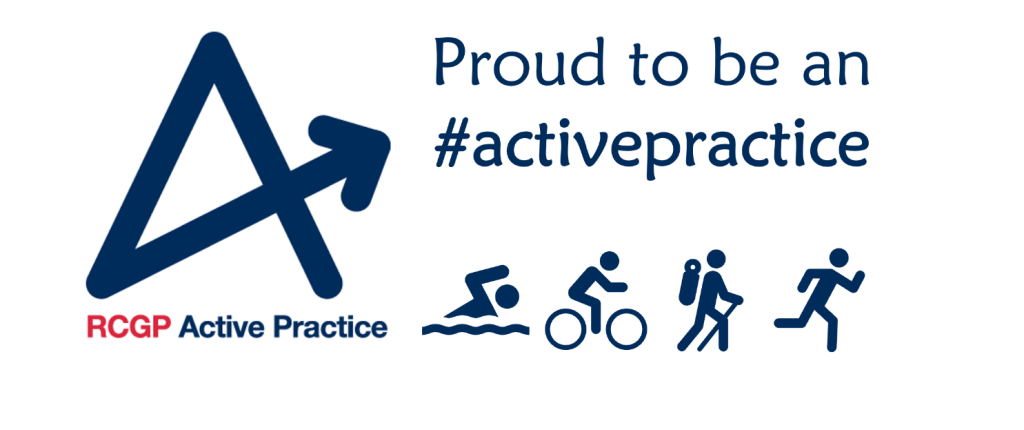Practice Half Day Closures 2026
Practice Half Day Closures 2026 Read More »
Our organisation is allocated three half-day closures each year to facilitate essential staff training. These sessions are crucial for ensuring that our team remains well-equipped with the necessary skills and knowledge to provide high-quality service. The training covers a range of important topics, including Basic Life Support, Fire Safety Training, and Dementia Awareness. Additionally, these sessions may include other mandatory training programs required to maintain compliance with industry regulations and uphold best practices within our field. These dedicated training periods allow our staff to stay updated on critical procedures and enhance their professional development.
Dates for 2026
We will close at 13:00 on all three dates and will re-open the next working day.
Practice Half Day Closures 2026 Read More »

Weight Loss Injection Read More »
Throughout the Practice, a variety of healthcare professionals will be available at stands to chat and answer questions. In addition to one-on-one conversations, many of our teams will be showcasing their departments and the work they do (where possible).
So far we have the following confirmed:
We’re also thrilled that Emma Fovargue from Livewell Southwest who works across our Primary Care Network (Abbey, Tavyside, Yelverton) will be attending. Emma will join our nursing team on stand.
We are also thrilled that Sarah Stapleton from Devon Training Hub will be in attendance as well and alongside her speaker session slot, will be on stand to discuss learning and development, apprenticeships and the GP Assistant role.
WE ARE STILL WAITING ON MORE ATTENDEES TO CONFIRM
TIME | SPEAKER | INFORMATION |
09:00 | Dr Coldron GP Partner Tavyside Health Centre | Dr Coldron will be sharing her incredible experiences in medicine abroad, including her time working as a doctor in Australia and even Antarctica, one of the most remote and challenging environments on Earth. Whether you’re considering a career in medicine, love travel, or just want to hear a truly inspiring story, this is a talk you won’t want to miss! |
09:30 | Cate Dawes | Cate will be sharing what it’s really like to work as a pharmacist — both in the community and as part of a wider healthcare team. From medication management and patient consultations to clinical decision-making and public health, this is a role that’s far more than just dispensing! Her talk will cover: Whether you’re curious about pharmacy, interested in science-based careers, or just want to learn more about this vital healthcare profession — don’t miss it!
|
10:00 | Sarah Stapleton | Not All Heroes Wear Stethoscopes: Careers in General Practice When most people think about careers in healthcare, they think of doctors and nurses. But GP Practices rely on a whole team of people working behind the scenes to help patients and keep everything running smoothly. In this short session, you’ll get a look at the non-clinical side of general practice – including exciting roles like the GP Assistant – and how apprenticeships can help you get started on a career that really makes a difference, without going to university first. If you’re interested in helping people, being part of a team, and building a career with purpose, this session might be for you! Sarah Stapleton has worked across general practice in a range of roles, from reception through to practice management. Now working for Devon Training Hub in an education development role, she supports the training and development of the non-clinical workforce across primary care. She is passionate about helping others reach their full potential and thrive in their careers. |
10:30 | Jonathan Coe | Jonathan will be talking about the world of management in healthcare, with a special focus on general practice. From how he got started in his career to what it’s really like managing a busy GP surgery, Jonathan will give us an honest, behind-the-scenes look at a role that’s essential to keeping healthcare running smoothly. Expect insights into: ✅ What a day in the life of a Practice Manager looks like ✅ The balance between clinical care and operational management ✅ The diverse skills needed to lead a successful team in primary care ✅ The many different career routes into healthcare management Whether you’re interested in leadership, healthcare, or working behind the scenes to make a real difference, then this is the session for you. |
11:00 | Jessica Danning | Jess will be sharing her inspiring journey into nursing, giving insight into life working in both hospitals and general practice. She’ll talk about how she got started, what it’s really like on the front lines of patient care, and the many career paths nursing can lead to, from clinical roles to leadership and beyond. Whether you’re thinking about nursing or just curious about a career that truly makes a difference, don’t miss this chance to hear from someone passionate and experienced in the field! |
11:30 | Dr Hewitt | Dr Hewitt will be offering a personal and insightful talk on “A Day in the Life of a GP” — giving you a real look at what it’s like to be a doctor in general practice. She’ll also share: ✅ How she got into medicine This is a must-see for anyone interested in medicine, patient care, or exploring the diverse career paths in healthcare. |
Careers Day (Saturday 19th July, 09:00-12:00) Read More »
Over the last couple of years there has been a huge increase in people using injectable medications for weight loss treatment. Because of the limited availability on the NHS for people who are not diabetic much of this is privately sourced. There are around half a million users in the UK.
The main medications available are Tirzepatide (the brand name is Mounjaro) and Semaglutide (the brand names are Ozempic and Wegovy).
All these medications are called GLP-1 injections and they work by mimicking a naturally occurring hormone, glucagon-like peptide-1 (GLP-1), to help regulate blood sugar and promote weight loss. They achieve this by causing lots of changes in the body including increasing insulin production, reducing glucose production in the liver, and slowing down food digestion, leading to a feeling of fullness and reduced appetite.
They are very effective weight loss mediations when you are taking them, but on stopping them over a few weeks the effects diminish, appetite returns and most people regain a substantial proportion of the weight lost over the following months unless they have simultaneously managed to make dietary and lifestyle changes.
On the whole the data we have at present indicates these are relatively safe medications. The main side effects are gastric with people feeling sick, vomiting, being constipated or having diarrhoea and experiencing abdominal discomfort and increased flatulence. Other common side effects are tiredness, dizziness and hair loss.
There are some people who should NOT take GLP-1 injections for example people with significant gastrointestinal diseases, anyone who has had pancreatitis before, or anyone who is pregnant and breastfeeding.
There is no little data about the safety of these medications in pregnancy and it is advised that if you are using these injections you should be using an effective form of contraception and continue this for up to 3 months after stopping them.
As a GP with a special interest in women’s health I’m aware there are 2 groups of people who may be using GLP-1 injections and could run into problems:
Women of childbearing age – Mounjaro (but it seems not ozemipic or wegovy) has a significant impact on how well the body can absorb the contraceptive pill – both the combined pill, and the progesterone only pill. This can decrease the effectiveness of the pill and put women at risk of unplanned pregnancy. If you are using pills for contraception you should be using extra precautions for a month after you start Mounjaro AND for a month after any dose increase. Contraceptives like implants or coils are not affected and are safe to use. If you are taking the pill and do not want to use barrier contraception perhaps consider changing to a more effective contraceptive method before starting the injections. This is a very good information leaflet that covers lots of issues to do with GLP-1 injections and contraceptive pills: https://www.fsrh.org/Common/Uploaded%20files/documents/Patient-information-GLP-1-agonists-and-contraception.pdf
Postmenopausal women on HRT – it’s thought that all GLP-1 injections, but likely especially Mounjaro, can impact the absorption of HRT taken by mouth. So for those taking oral oestrogen the injections could cause your menopausal symptoms to increase. More concerning is if you are using an oestrogen through the skin via a patch, spray or gel AND oral micronised progesterone (utrogestan) tablets. If you have the normal amount of oestrogen but too little progesterone the lining of the womb is not adequately protected and this can cause bleeding and increase the risk of endometrial cancer. If you are on HRT with oral progesterone, before you start the GLP-1 injections, please discuss with your GP the options of either increasing your oral progesterone or change to a progesterone mixed in to the patch or via a coil. If you do have increasing or unexpected bleeding on your HRT preparation please discuss with your GP.
Dr Jo Coldron (GP Partner)
Tavyside Heatlh Centre
Weight Loss Injections Read More »

We’re Proud to Be an Active Practice! Read More »
Group Clinics: Together, patients are stronger
What are group clinics?
Group Clinics are still a clinical appointment. It’s a way for GP practices to consult with patients in a group. This allows patient to learn more about their condition whilst meeting others who can share their experiences and learnings.
While a traditional clinician and patient appointment, such as an asthma or diabetes review, lasts around 20-30 minutes, our group clinics can run for 45-60 minutes and allow up to 6 participants to spend more time with their specialist clinician – and each other. This allows additional time to ask questions so you can better understand your condition and how to look after yourself.
Group clinics continue to foster a sense of community between patients and staff, allowing everyone to learn from each other in a safe and secure setting, making a real difference to day-to-day life.
We are now running our Type 2 annual diabetic review appointments as group clinics.
For further information, please clinic here – Group Clinics

Dr Harriet Doyle
Senior Partner
Tavyside Health Centre
How to get the most out of your GP consultation Read More »
A shared care agreement is a formal arrangement where responsibility for a patient’s medication is shared between a specialist consultant and a GP.
Share care agreements are used for specialist medications examples include disease modifying drugs, some hormone therapies, and ADHD medications.
Tavyside Health Centre considers all shared care requests from locally commissioned NHS providers.
Tavyside Health Centre will no longer be entering into new shared care agreements with private and independent providers.
What this means for patients:
Existing agreements: Patients currently under private shared care arrangements will continue to receive care as per their existing agreement until further notice
New requests: We will no longer accept new requests from private or independent providers for shared care agreements. Patients seeking such arrangements will need to explore alternative options and may wish to consider:
· Fully private treatment through their specialist
· Discussing NHS referral options with their GP
This decision has been made to ensure equitable access to services and to maintain high standards of prescribing safety and monitoring for our patients, it is in line with the guidance from NHS Devon and the BMA. Mixed funding (Private and NHS) Shared Care requests – One Devon
Shared Care Agreements Read More »
As one of the menopause leads in my practice I naturally have a lot of discussions about Hormone Replacement Therapy (HRT) but there are many of us who are unable to take HRT or who’s symptoms aren’t fully controlled by it. Just as important as medication is looking at what symptoms can be reduced by lifestyle and environment changes. To be honest a lot of the lifestyle advice is the same as we discuss with our patients all the time – eat a healthy diet, do more exercise, don’t smoke and drink less. I worry that the repetition of this advice decreases it’s impact, but there are specific reasons in menopause why it’s so important to focus on this.

Activity and Exercise
For me the most important message I can communicate is how important activity and exercise is in perimenopause and post menopause life. Increasing physical activity, and for those who can, adding in moderate and vigorous activity like running, has a direct impact on menopause symptoms. It reduces hot flushes and temperature intolerance, probably because a lot of the physiological changes the body makes to cope with being hot and sweaty during exercise then help us to regulate temperature control at other times. Increasing activity, especially outdoors, decreases stress and improves cognitive function and brain fog. The link between exercise and the brain is becoming increasingly understood with increasing evidence all the time. All of these improvements can then add together to improve sleep, so important as one of the tortures of menopause is insomnia.
As well as a direct impact on symptoms increasing activity has a huge effect on post menopausal health. It has a huge positive benefit to the risk of heart attack and strokes that increases markedly post menopause. It limits the loss of bone density and the change of developing osteoporosis. It helps maintain muscle mass allowing us to be active longer and prevent falls and musculoskeletal pain. It is a powerful tool to prevent weight gain and especially fat placement around the middle which is more dangerous for our health.
Smoking and vaping
Smoking and vaping makes hot flushes worse, make sleeping, anxiety and cognitive function deteriorate and moods swings increase. We all know how damaging smoking is to the body generally, damaging our lungs and cardiovascular system and adding to thinning of the bones (vaping seems to be as bad for bones as cigarettes are), but quitting at any time of life can be positive.
Alcohol and caffeine
Alcohol and caffeine make hot flushes worse at the time of drinking and for some hours after, again compounding a lot of the other symptoms of menopause. Alcohol and caffeine also have a direct impact on the brain increasing anxiety, mood swings and brain fog independent of the insomnia.
Diet
Eating large meals late, especially high sugar or spicy meals can have a huge impact on flushes and sleep during the night. Avoiding high sugar or ultra processed foods and eating more whole foods can decrease menopause symptoms, be a part of losing or controlling weight and improving our health as we age. Foods containing phytoestrogens, for example lentils and chick peas, can improve menopause symptoms.
Environment
I think any menopausal woman knows the importance of a cool environment, light clothing that can be altered quickly when hot flushes occur, and cool calming sleep environments. One area of life we have less control over is our working environment but menopausal women are entitled to work in a place that allows them to feel well and this is supported in law.
Stress and mental wellbeing
This is a more difficult thing to tackle. Menopause tends to hit just at the point of life where work can be stressful, family commitments can include caring for both children and elderly relatives, and the pressures of life at present are intense. Menopausal symptoms are compounded by stress, and feeling unwell then decreases wellbeing – a vicious circle. It’s important to prioritise wellbeing for yourself and not just care for others.
Useful Links:
https://www.cuh.nhs.uk/patient-information/menopause-a-healthy-lifestyle-guide/
https://www.talkworks.dpt.nhs.uk/workshops/talkworks-for-menopause
https://www.menopausematters.co.uk/
https://rockmymenopause.com/resources/
https://www.acas.org.uk/menopause-at-work
Menopause Lifestyle Read More »